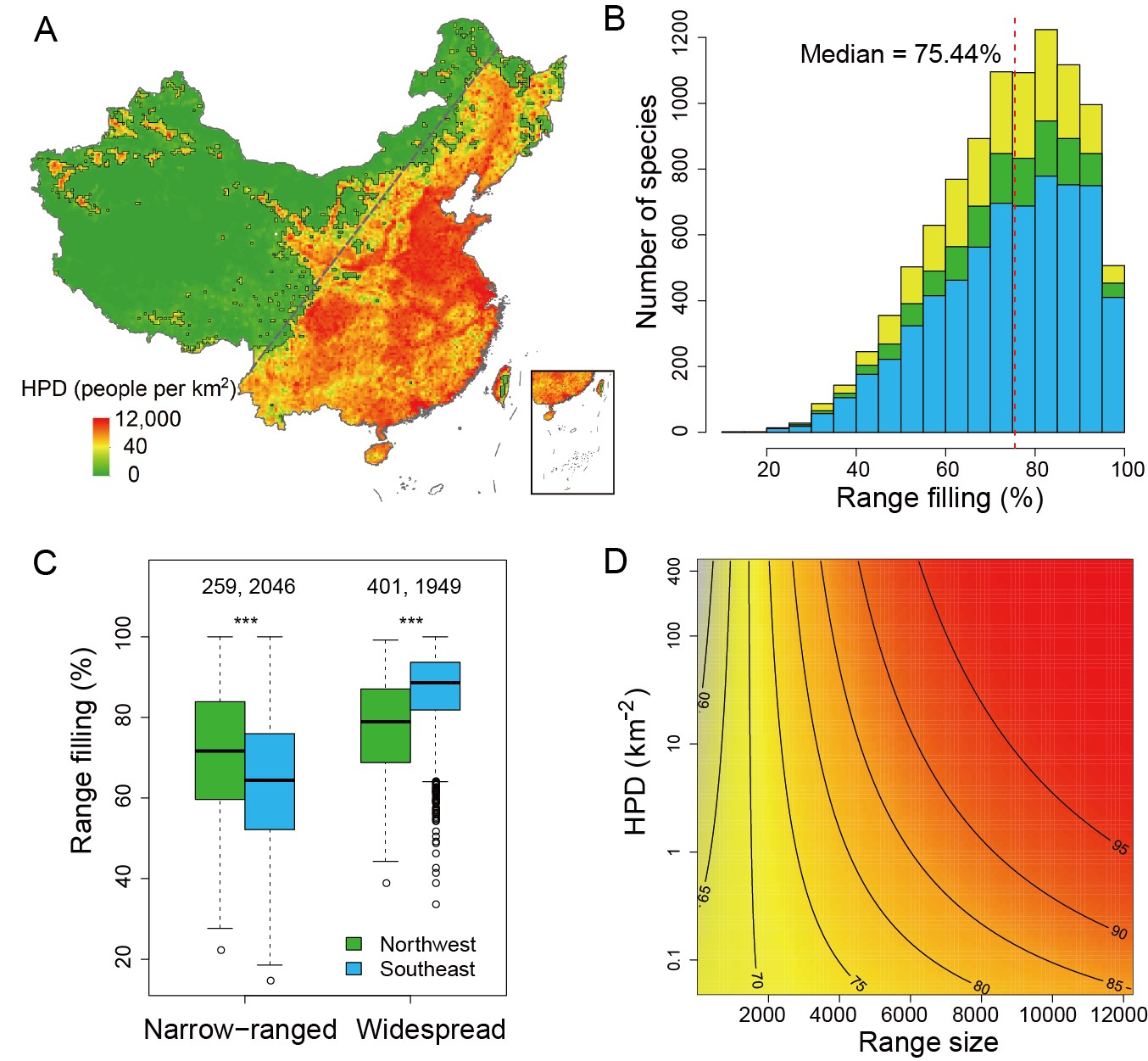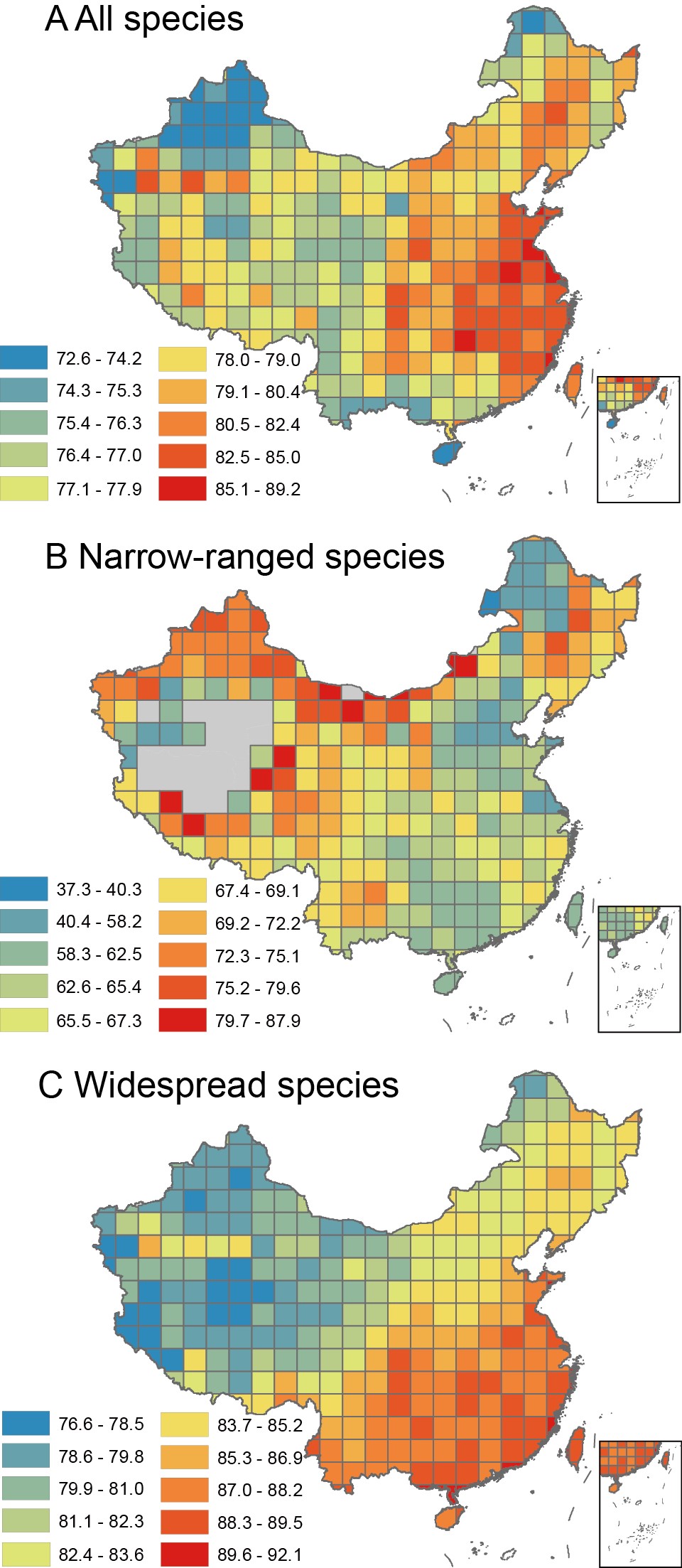With intensifying human activities, many species have been threatened with extinction. However, many other species expand their ranges.Is there a general rule to identify which species are “losers” or“winners”?
A research team led by Prof. MA Keping from the Institute of Botany of the Chinese Academy of Sciences,in collaboration with scientists from the Center for Biodiversity Dynamics in a Changing World (BIOCHANGE) at Aarhus University (Denmark), revealed that narrow-ranged plants in China are more likely to be “losers”, whereas the widespread to be “winners” under intensive human activities. This study was published in the journal PNAS on December 16, 2019.
China is one of most species-rich country, but has suffered from long-term high human pressures. Despite the large human population in China, human population density is not evenly distributed across the country, with its most people living in the southeastern part of a straight line, known as “Hu Huanyong Line”, stretching from Heihe City in Heilongjiang Province to Tengchong county in Yunnan Province.
Due to the lack of extensive dynamic species distribution data, relatively few studies have comprehensively evaluated human impacts on large-scale distributions of the species in high-diversity organism groups. Further, such assessments are challenged by the confounding effects of natural drivers such as climate. Contributing to overcoming this knowledge gap, the researchers here quantify the effect of human impacts on the distributions of 9701 vascular plant species across China. The study factored out the effect of climate through assessing how human activities affect the extent to which each species fills its climatic potential range (the potential distribution given its statistically estimated climatic niche).
This study found that narrow-ranged species in the human-dominated southeast have lower range filling, whereas widespread species have higher range filling, relative to their counterparts distributed in the northwest. Furthermore, variation in range filling is strongly associated with human impact factors, with negative and positive relations for narrow-ranged and widespread species, respectively. These results suggest that human activities have reduced ranges of narrow-ranged species, but expanded those of widespread species, relative to their climatic potential.
The narrow-ranged species may be more sensitive to human pressures through being relatively environmentally specialized or poorly dispersed. Conversely, widespread species, as pioneer species may be more generalistic and/or better dispersed, making them better equipped to exploit human-disturbed habitats.
“With narrow-ranged species becoming replaced by widespread species due to human activities, the Chinese flora risks biotic homogenization”, says Dr. XU Wubing, the first author of this study.
Because narrow-ranged species are more numerous than widespread species, the negative human impacts on species distributions are likely very prevalent. “This highlights the importance of establishing more protected areas as well as widespread, biodiversity-oriented ecosystem restoration to safeguard the China’s unique, rich flora”, explains coauthor professor Jens-Christian Svenning, director of BIOCHANGE, Aarhus University.

Fig. 1.Human population density across China, with the dashed as“Hu Huanyong Line” (left); and comparisons of range filling between the northwestern and southeastern species within the narrow-ranged and widespread species (right). Credit: Wubing Xu

Fig. 2.A fragmented habitat caused by intense human utilization in Zhejiang Province, China. Credit: Yunquan Wang

Fig. 3.(A) Gastrodiaelata, a very rare medical orchid in the wild due to overexploitation; (B) Pinus massoniana, a very common tree for afforestation. Credit: Bin Chen for A, and Jinlong Zhang &Guoke Chen for B.

